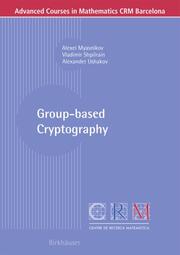Detailansicht
Group-based Cryptography
Advanced Courses in Mathematics - CRM Barcelona
ISBN/EAN: 9783764388263
Umbreit-Nr.: 1887141
Sprache:
Englisch
Umfang: xv, 183 S.
Format in cm:
Einband:
kartoniertes Buch
Erschienen am 17.07.2008
Auflage: 1/2008
- Zusatztext
- This book is about relations between three different areas of mathematics and theoretical computer science: combinatorial group theory, cryptography, and complexity theory. It is explored how non-commutative (infinite) groups, which are typically studied in combinatorial group theory, can be used in public key cryptography. It is also shown that there is a remarkable feedback from cryptography to combinatorial group theory because some of the problems motivated by cryptography appear to be new to group theory, and they open many interesting research avenues within group theory. Then, complexity theory, notably generic-case complexity of algorithms, is employed for cryptanalysis of various cryptographic protocols based on infinite groups, and the ideas and machinery from the theory of generic-case complexity are used to study asymptotically dominant properties of some infinite groups that have been applied in public key cryptography so far. Its elementary exposition makes the book accessible to graduate as well as undergraduate students in mathematics or computer science.
- Kurztext
- InhaltsangabePreface.- Introduction.- I. Background on Groups, Complexity, and Cryptography.- 1. Background on Public Key Cryptography.- 2. Background on Combinatorial Group Theory.- 3. Background on Computational Complexity.- II. Non-commutative Cryptography.- 4. Canonical Non-commutative Cryptography.- 5 Platform Groups.- 6. Using Decision Problems in Public Key Cryptography.- III. Generic Complexity and Cryptanalysis.- 7. Distributional Problems and the Average Case Complexity.- 8. Generic Case Complexity.- 9. Generic Complexity of NP-complete Problems.- IV. Asymptotically Dominant Properties and Cryptanalysis.- 10. Asymptotically Dominant Properties.- 11. Length Based and Quotient Attacks.- Index.- Bibliography.
